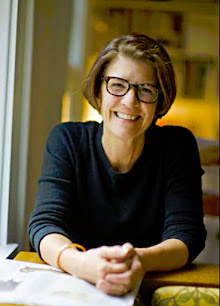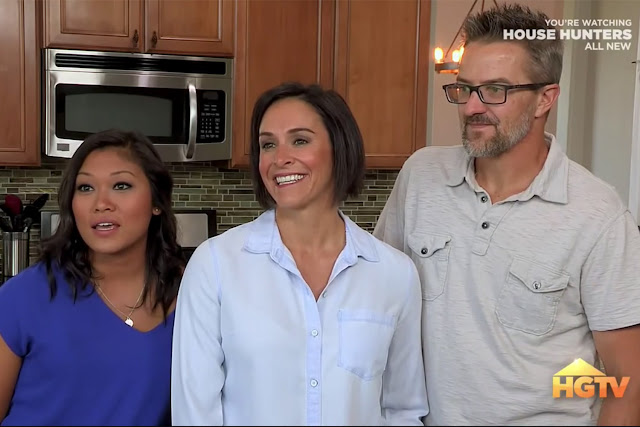Mainstream poly, anti-capitalist poly, the Harvard Law Review, and the good stuff your relatives are reading from Ask Amy right now
Dear Amy: Our son and daughter-in-law, married for about six years, recently dropped a bomb on my husband and me.
They told us they are involved in polyamorous relationships where each has another partner, lover or person they each spend a lot of time with outside of the marriage.
They tell us that this lifestyle is becoming more common. They are in their mid-30s, and don’t have children.
We are having a hard time understanding this choice and accepting what this will mean for our relationship going forward, and for our larger family. We are the only family members they have shared this information with so far, and we are sworn to secrecy.
They may have eased their consciences by telling us, but now we are left with troubling and unsettling information and no place to go with it. We assured them that we will never stop loving them, but this is awkward for us.
What can we do to ease our troubled minds?
— Bewildered Parents

Amy Dickinson
Bewildered: ...You may define marriage as monogamy until divorce or death, but as people explore their freedom to redefine the boundaries of what it means to be married, they may choose “ethical non-monogamy,” which is where they remain lovingly married, but are free to engage in other romantic relationships in a way that they believe is open and honest. They don't define this as infidelity. It is about consensual relationships.In my opinion, the important question is how these polyamorous relationships will affect children growing up in families with three or four adults who all identify as parents and partners. If all the adults are stable, loving, and committed to the children, then I imagine the kids will be fine.Take a breath, do some reading about polyamory, and understand that you define marriage one way, while they define it differently.Unless you and they are religious, this doesn't make it “wrong.” It just makes it “what is.”This is their life and their choice, and if they want to remove the taboo surrounding polyamory, you should discourage them from defining this as a deep, dark family secret.They (not you) can explain themselves to other family members when the time comes, and yes — it's bound to be awkward … until it isn't.

Joe Newton ...When we started dating, she said she needed us to be poly and I agreed. It was a first for both of us! I'd always been interested—my parents are queer and have been poly my whole life—so it wasn't a new concept to me. Early on, we went on some random dates, made out with some other people, but took it slow because we wanted to build a foundation of trust and love first. Now we're there.
She recently started dating a close friend of ours. In theory, I'm good with it. I adore him and he cares about us as a couple. There's lots of communication happening in all directions. We've even tossed around the idea of some threesomes or foursomes. I can't wait for the day when I am truly stoked for this, and we can all play and love on each other. But I don't want to “overcome the jealousy” or “deal with it.” I want being poly to be something that makes life amazing! But I am still being restricted by silly feelings put in my head via some nefarious patriarchal capitalist hack. Any advice for moving on as quickly as possible into a polyamorous paradise? I want to feel queerer and a little less mainstream!
—Seeking Polyamorous Effortless Wonders
No relationship—closed, open, or poly—is a paradise. Ideally a relationship brings more joy into your life than pain. ... But misunderstandings, disagreements, and hurt feelings are a part of every romantic partnership. And the longer that partnership goes on, the likelier the people in it—couple, throuple, or quad—are going to face the kind of relationship-extinction-level event that requires contrition, forgiveness, and aggressive memory-holing to survive.As for jealousy… My husband has been with his boyfriend for five years; there are times when I see them together and I am not just happy for them, SPEW, but made happy by them. (I’m straining to avoid the term “compersion” here, or “the other c-word,” as it’s known at our house.) But there are times when I feel jealous… and if I’m still experiencing jealousy after 20+ years in an open relationship… and still experiencing jealousy after 30+ years being pretty fucking queer… I don’t think jealousy is something you need to completely overcome before opening your relationship or that that being “queerer” cures.And it’s important to distinguish between different kinds of jealousy. There’s the healthy kind of jealousy (someone is being neglected or taken for granted, and their feelings need to be considered), there’s the unhealthy kind of jealousy (someone is controlling and manipulative, which is a red flag for abuse), and then there’s the sexy and energizing kind of jealousy (seeing your partner through another’s eyes and recognizing—or being reminded—of your partner’s desirability).... You need to ask yourself what kind of jealousy you’re feeling at a particular moment. If it’s the healthy kind, ask for you what you need; if it’s the unhealthy kind, get your ass into therapy; if it’s the sexy and energizing kind, enjoy the ride.And finally… It’s good that you’re taking your time, because rushing things is a good way to fuck this up. But paradoxically, if you wait until you’re no longer experiencing any jealousy—or no longer have conflicted feelings about this—you’ll never get there.
● In a different vein, Challenging Monogamy Is a Political Act. The institution has its roots in capitalism and colonialism. (Feb. 17) It's in Novara Media, "addressing the issues that are set to define the 21st century, from a crisis of capitalism to racism and climate change." It features the indigenous American activist and scholar Kim TallBear.
By Sophie K RosaEven among “people who consider themselves progressive […] there’s a deep resistance” to non-monogamy, says Kim TallBear, a professor at the University of Alberta, who specialises in decolonial sexualities. ...On the left, critiques of non-monogamy and polyamory are often framed in neoliberal terms. Choosing to have sex with multiple people, or to sustain multiple romantic relationships, some argue, mirrors individualistic, free-market ideology. But according to polyamorous educator Leanne Yau, versions of both non-monogamy and monogamy can be criticised as “relationship capitalism”....Yau takes issue with the stereotype that non-monogamous people have shallower relationships, or that they tend to instrumentalise people. “You can commit to multiple people and accept them flaws and all,” she says. “While there are people who commodify others in non-monogamy, that also happens in monogamy.”Non-monogamy can be a deeply political project.It can be a privilege to dismiss non-monogamy as a flimsy or apolitical idea, argues TallBear. Queer people, for instance, she says, “don’t really get away with feeling like it’s irrelevant” because they don’t fit into heterosexual dictates to begin with. Race also plays a part in this. “I think many white people, especially, don’t have a sense that [non-monogamy can be] a deeply political project” for some people of colour, she says, beyond the idea that it is “vaguely pushing back against religious norms or restrictions.”Even among leftists, it goes widely unacknowledged that monogamy not only has its roots in capitalism, but that it was violently enforced upon colonised peoples, says TallBear. Monogamous and non-monogamous people alike often “have no sense of the way that [monogamous settler] marriage and straightness was imposed on people in order to build the nation-state.”Nana Darkoa Sekyiamah, author of The Sex Lives of African Women, explains that in Ghana, for example, British colonisers framed multiplicitous relationship structures – any alternative relational forms – as immoral, while institutionalised heterosexual monogamous marriage was seen as a civilised form of kinship. “A diversity of relationship types was lost, and a form of relationships that wasn’t native to us became what was regarded as the norm,” says Sekyiamah. ...It’s not just for the white middle class....Non-monogamy can be part of building queerer, more comradely and communal futures. When researching for her book, Sekyiamah found that the women she interviewed who “seemed to me to be the happiest women, the women with the best sex lives”, were those “not conforming to societal norms [but] trying to figure things out for themselves.”...But while challenging the dominance of compulsory monogamy is important both politically and in terms of building more conscious relationships, it doesn’t mean we have to pit different relationship styles against each other.Yau says she rarely encounters non-monogamous people who are “anti-monogamy” – those who are, she says, are often “newbies”, insecure in their new way of being in a mononormative world. More often, she finds, when monogamy does come into criticism, it isn’t the idea itself that is being challenged, but “either the institution of monogamy – compulsory monogamy – [or] the toxic parts of monogamy: the idea that jealousy equals love and care, or that love is sacrifice, or that your partner should be able to meet all of your needs, or that your one romantic partner should be the sole focus of your entire existence […] or that the relationship escalator is how you should find meaning in your life.”Non-monogamous people are very rarely interested in replacing monogamy, but in imagining a society beyond compulsory monogamy. It isn’t all about romance and sex, either. ... Asexual and aromantic polyamorists have taught her a lot about this, [TallBear] says, through their capacity to “have multiple, caring, mutually sustainable” committed partnerships that might not include romantic love or sex at all. ...In Yau’s view, intentional, “healthy monogamous relationships” are not so different from non-monogamous ones anyway. Whether or not you’re having sex with more than one person, you can sustain multiple close relationships. “In non-monogamy all you’re doing [differently],” she says, “is doing romantic or sexual things with more than one person.” ...Sophie K Rosa is a freelance journalist. ... Her book, provisionally titled Radical Intimacy, will be published by Pluto Books in 2023.
This Note examines potential legal challenges to multiple-partner domestic partnership ordinances. Part I describes communities that the ordinances serve, characterizes the discrimination and harassment that communities face, and explains what CNM people will gain from the passage of these ordinances. Part II surveys the complex legal questions that these ordinances generate, such as local government’s authority to pass them, state preemption through civil and criminal statutes, criminalization through anti-bigamy laws, and the application of comity doctrine in other cities and states. Part III evaluates approaches for addressing challenges that the ordinances may face at the municipal, state, and federal levels, such as legislative advocacy and litigation based on gay rights precedents. Ultimately, the ordinances likely will survive challenges and show that, legally speaking, “three is company, too.”
“There's nearly always going to be one partner who is more adventurous about outside relationships and one who is less so,” she says. “If you’re doing it right, you wind up with one person feeling just a little bit stretched and pushed, but within their tolerance, and one person who's feeling a little bit constrained, but within their tolerance.“So if everybody is just a little bit unhappy, that's a good sign that you're doing it right. If one person is delighted and the other person is unhappy, then that's a good sign that you're doing it wrong.”

Charlotte, Jamie and Laura. (Mercury Press & Media)
A UK woman says she’s fallen head over heels in love with a couple after matching with the pair separately — and now the smitten trio have formed a throuple.“We all date each other, and it’s all equal,” Lora Corser, 28, told Caters News Agency of their polyamorous relationship...“Initially, I matched with Jamie and Charlotte separately,” Corser said of the instant chemistry among the three soulmates, who live together in Leicester, East Midlands. “We weren’t ever supposed to all be in a relationship but Charlotte and I instantly hit it off.”And while the lovestruck triumvirate initially intended to date separately, their relationship “grew naturally” to the point where the three are now inseparable.“This is definitely the most communicative and safe relationship that I think I’ve ever been in,” gushed Farmer of their romantic triple header. ...
SUBSCRIBE by a feed, or
SUBSCRIBE by email
_________________________
[Permalink]
Labels: #PolyamoryintheNews, #PolyamoryNews, #PolyDomesticPartnerships, #PolygamyInTheBible, Ask Amy, history, jealousy, leftist/anarchist, legal















